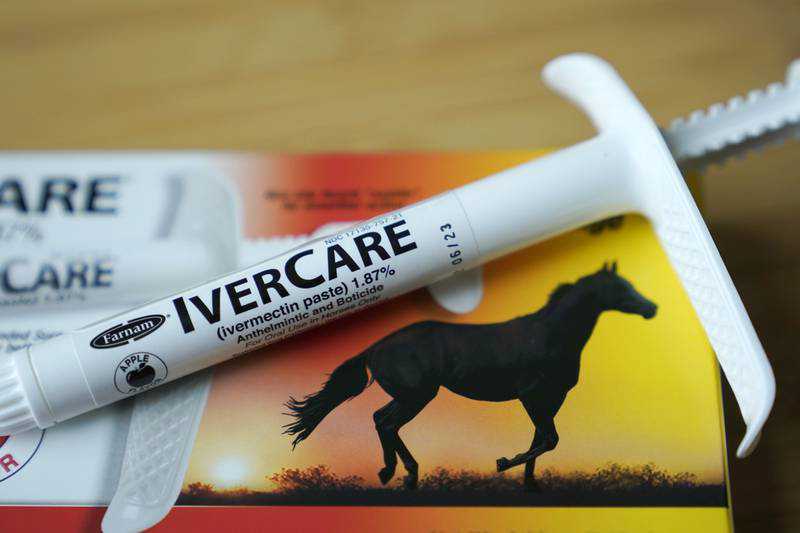Ivermectin and Covid-19: why controversy around the drug was reignited this week
05 February, 2022

The rise of the Covid-19 pandemic has acted as a unifying force around the world, with nations rising to the challenge to deliver humanitarian relief and deliver vital vaccines in places where they are needed most.
But a public health crisis which has stretched on for more than two years has also led to distrust and division, with anti-vaccine sentiment intensifying under the glare of social media.
In the early stages of the pandemic, anti-malaria drug hydroxychloroquine was embraced by some as a magic cure for Covid-19 after being championed by former US President Donald Trump.
More recently, ivermectin has emerged as a potential saviour for those opposed to vaccination. Earlier this week, Reuters was forced to correct a report claiming ivermectin was effective in the treatment of Covid-19. It is not the first time the drug has generated controversy. But what is it? And why do people keep saying it can cure the disease?
The National explains.
What is ivermectin?
It is a deworming drug mainly used by vets. But it can be used in humans and is approved for treating infections caused by some types of parasitic worms, as well as head lice and a skin condition called rosacea.
It is not, however, approved for use in the treatment of Covid-19. And many regulators, including the US Food and Drug Administration and its counterpart in Mexico, have specifically issued warnings against doing so as it has not been shown to be effective against the coronavirus as a treatment in people.
So where did the idea that it works come from?
It all started early after the onset of the pandemic in 2020, when research showed it was effective in killing the virus in vitro, which means in a test tube, essentially.
But what works in a lab does not always work in a person. And that is what happened in the case of ivermectin. Clinical trials showed it did not help treat the disease.
An analysis of available studies found that more than a third of the 26 major trials into its use against Covid had “serious errors or signs of fraud”, according to the BBC.
The rest provided no persuasive evidence it was effective. Dr Syed Rabbani, a specialist in internal medicine at NMC Royal Hospital, Sharjah, said while it was initially believed to hold promise, it has not been proved that it works.
A colleague at the hospital echoed those thoughts.
“There is very limited evidence for the benefit of ivermectin for Covid-19 treatment or [as a] prophylaxis,” said Dr Ram Shukla, specialist physician in infectious diseases at the Sharjah hospital.
“Most of the evidence is very low quality and further robust studies are needed before recommending it for treatment for Covid-19.
“Lack of effective data and possible drug interaction may lead to dose variations and harm. The available level of evidence does not justify use of ivermectin for treatment or [as a] prophylaxis for Covid-19,” he said.
Why is it still touted as a cure by some?
Because many against vaccination — widely known as anti-vaxxers — have seized on its potential to treat the disease. They include people like Laurence Fox, a British actor who recently said he was taking the drug to treat his symptoms while making light of the virus.
It has also been promoted by many conservative politicians in the US. That has led to a surge in calls to poison control centres about overdoses related to its use in the treatment for Covid. In large doses it can cause vomiting, seizures and even kill.
What reignited the controversy around the drug?
Earlier this week, Reuters, a news agency, was forced to issue a correction after erroneously claiming a phase 3 trial into the use of the drug against Covid showed it was effective.
A press release from Japanese pharmaceutical company Kowa, which is conducting a study into the drug, detailed information about preclinical work it had conducted, which showed Ivermectin was still effective in vitro against Omicron.
“All this report is saying is that … *in a lab* … ivermectin retains its antiviral properties again Omicron,” tweeted Dr Alastair McAlpine, paediatric infectious diseases doctor.
“Which is hardly blockbuster news. But as we know, this has not translated into meaningful data in humans. This report changes nothing.”
The Reuters story, which claimed ivermectin was “effective”, remained online for hours on Monday before a correction was issued.
The news agency service told Newsweek: “The original Reuters story misstated that ivermectin was 'effective' against Omicron in Phase III clinical trials, which are conducted in humans.
“We corrected this to clarify it had an 'antiviral effect' against Omicron and it was shown in joint non-clinical research. After being made aware of the error, we corrected our story immediately.”
The correction came too late and created further confusion by conservative anti-vaxxers, who latched on to the news and shared it widely.
They included the controversial US podcaster, Joe Rogan. He shared the news on his Twitter account, with the comment “Well, lookie here”.
He has since deleted the tweet.
Source: www.thenationalnews.com
TAG(s):
